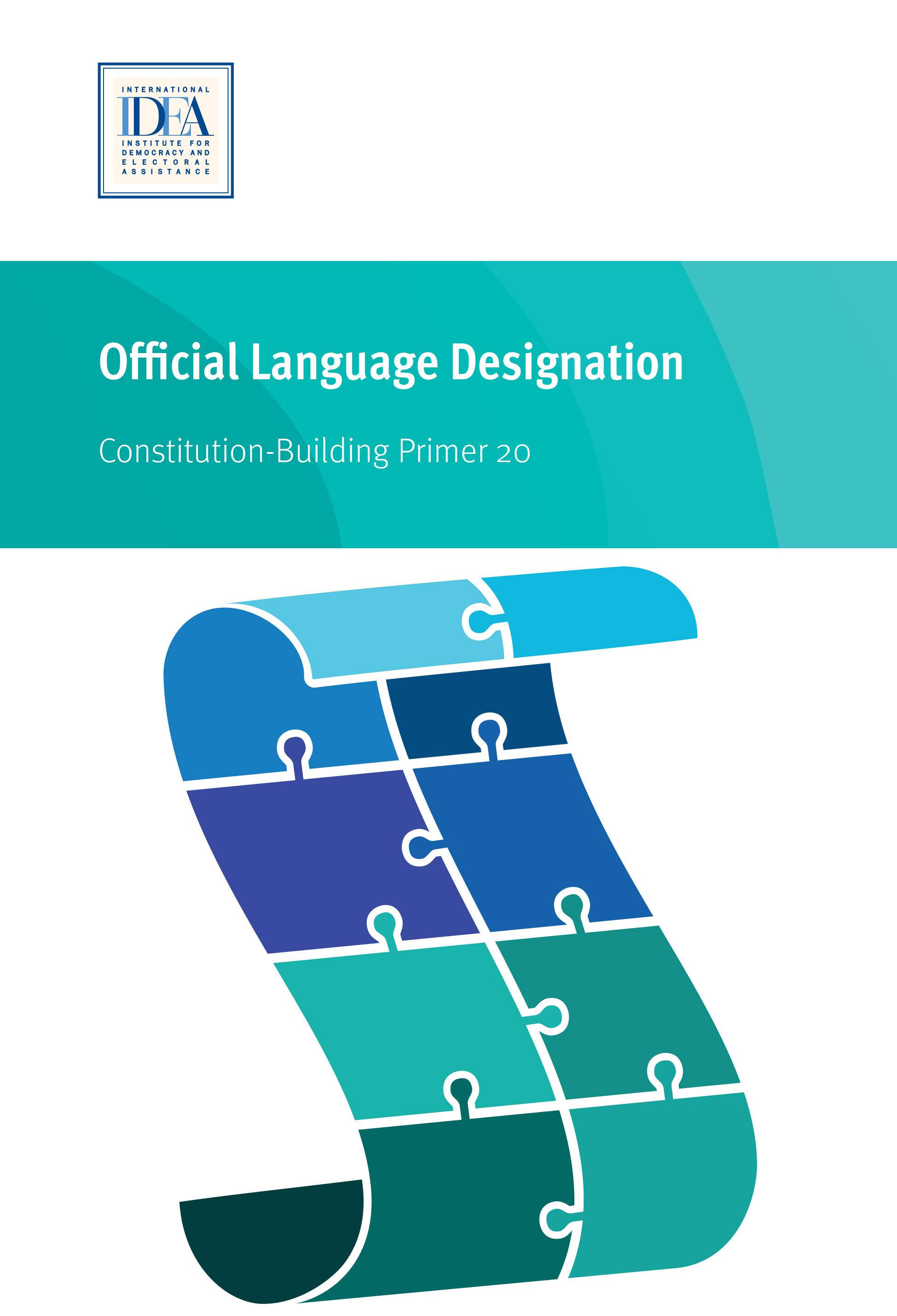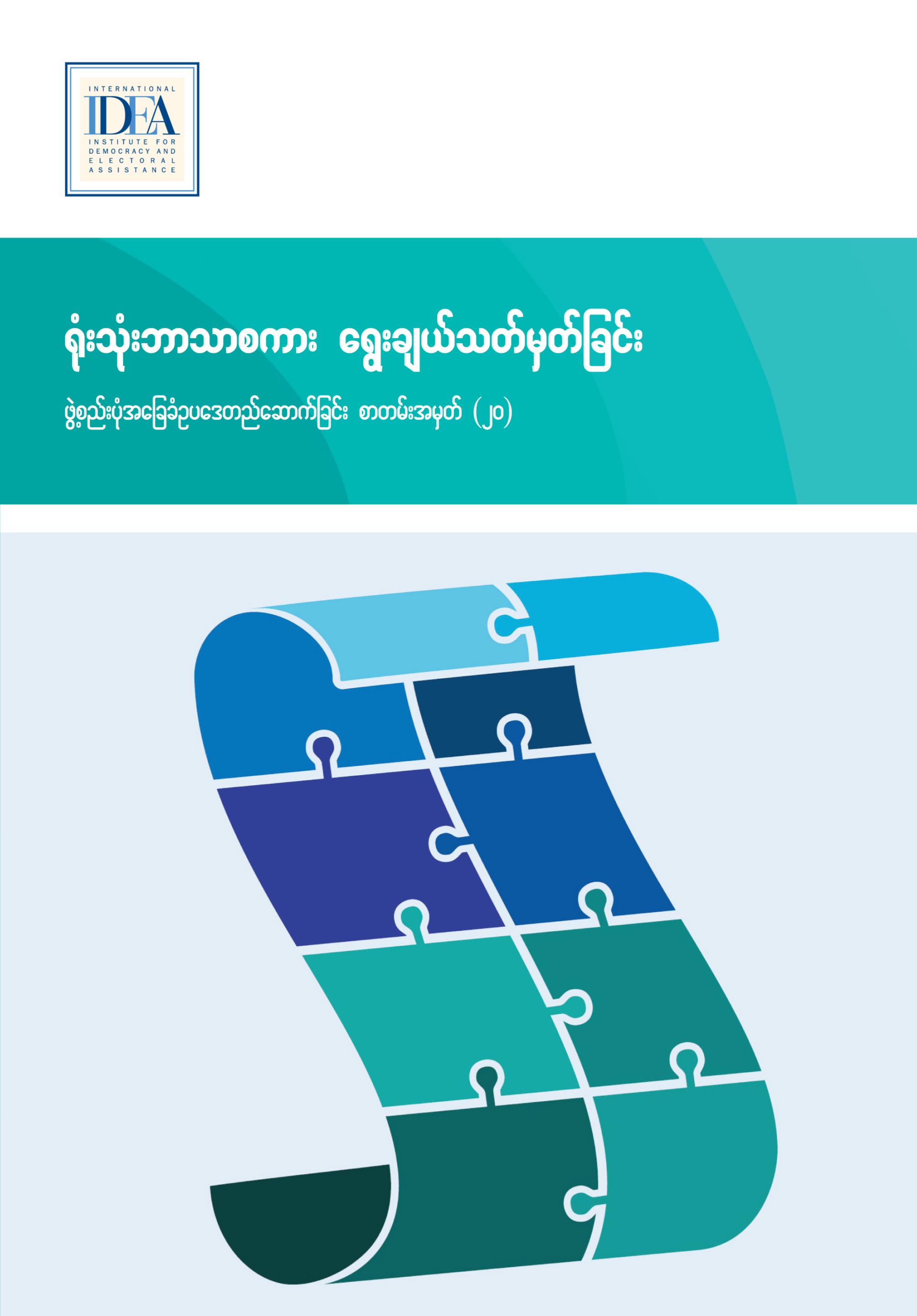OFFICIAL LANGUAGE DESIGNATION


မျက်မှောက်ခေတ် ဖွဲ့စည်းပုံအခြေခံဥပဒေများ၌ ထုံးစံအားဖြင့် ဘာသာစကားအတွက် ပြဋ္ဌာန်းချက်အမျိုးမျိုး ထည့်သွင်းထားပါသည်။ ၎င်းတို့သည် ရုံးသုံးဘာသာစကား တစ်မျိုးထက်ပိုသော ဘာသာစကားများကို မတူညီသော ဥပဒေအဆင့်များထားကာ ရွေးချယ်သတ်မှတ်ထားနိုင်သည်။ ဖွဲ့စည်းပုံအခြေခံဥပဒေများသည် များသောအားဖြင့် လူနည်းစုဘာသာစကားများအတွက် ဘာသာစကားဆိုင်ရာ အခွင့်အရေးများကိုလည်း ဖန်တီးပေးနိုင်ကာ လူအုပ်စုများနှင့် လူပုဂ္ဂိုလ်တစ်ဦးချင်းစီကို ၎င်းတို့၏ မူလဘာသာစကားဖြင့် ဆက်သွယ်ပိုင်ခွင့်၊ ထိုဘာသာစကားဖြင့် အစိုးရထံမှ ဝန်ဆောင်မှုရပိုင်ခွင့်တို့ ပေးပါသည်။ ဖွဲ့စည်းပုံအခြေခံဥပဒေများသည် ဥပဒေပြဋ္ဌာန်းရေးနှင့် တရားစီရင်ရေးတို့တွင် အသုံးပြုရမည့် ဘာသာစကားကိုလည်း ရွေးချယ်သတ်မှတ်နိုင်ပါသည်။ အဆင့်စုံ အုပ်ချုပ်ရေးစနစ်များ၌ ဖွဲ့စည်းပုံအခြေခံဥပဒေများသည် အစိုးရအဖွဲ့အသီးသီးအတွက် ရုံးသုံးဘာသာစကား(များ) ရွေးချယ်အသုံးပြုနိုင်သည့်အာဏာ အပ်နှင်းနိုင်ပါသည်။
ဤစာတမ်းသည် ဖွဲ့စည်းပုံအခြေခံဥပဒေဒီဇိုင်းရှိ ဘာသာစကားအခန်းကဏ္ဍ၊ ထည့်သွင်းစဉ်းစားစရာ အဓိကအချက်များ၊ ဘာသာစကားစုံနိုင်ငံများ၌ ပေါ်ပေါက်လာနိုင်သော ဂယက်ရိုက်ခတ်မှုများနှင့် စိန်ခေါ်မှုများတို့ကို ဖြေရှင်းပေးပါသည်။ ဘာသာစကားနှင့်ဆိုင်သော အဆိုအမျိုးမျိုးကို ဖွဲ့စည်းပုံအခြေခံဥပဒေဆိုင်ရာ အရေးကိစ္စအဖြစ် ဆွေးနွေးထားသည့်အပြင် ထိုအဆိုများကို အောင်မြင်စွာ ကိုင်တွယ်ဖြေရှင်းနိုင်ပါက (သို့) မဖြေရှင်းနိုင်ပါက ပေါ်ပေါက်လာနိုင်သည့် အကျိုးဆက်များအကြောင်းကိုလည်း ဆွေးနွေးထားပါသည်။
Modern constitutions typically contain a variety of provisions on language.
They may designate one or more official languages, each with a different kind of legal status. Constitutions may also create language rights, usually held by minority-language speakers, granting groups and individuals the right to communicate with, and receive services from, the government in their native tongue. In systems of multi-level governance, constitutions may vest the authority to designate official language(s) for each order of government.
This Primer addresses the role of language in constitutional design, and the key considerations, implications and potential challenges that arise in multilingual states. It discusses the range of claims around language as a constitutional issue, and the potential consequences of successfully addressing these claims—or failing to do so.